September 2022 Cooling Measures Announced: An Attempt To Cool The Hot Property Market And How It May Affect You
September 30, 2022
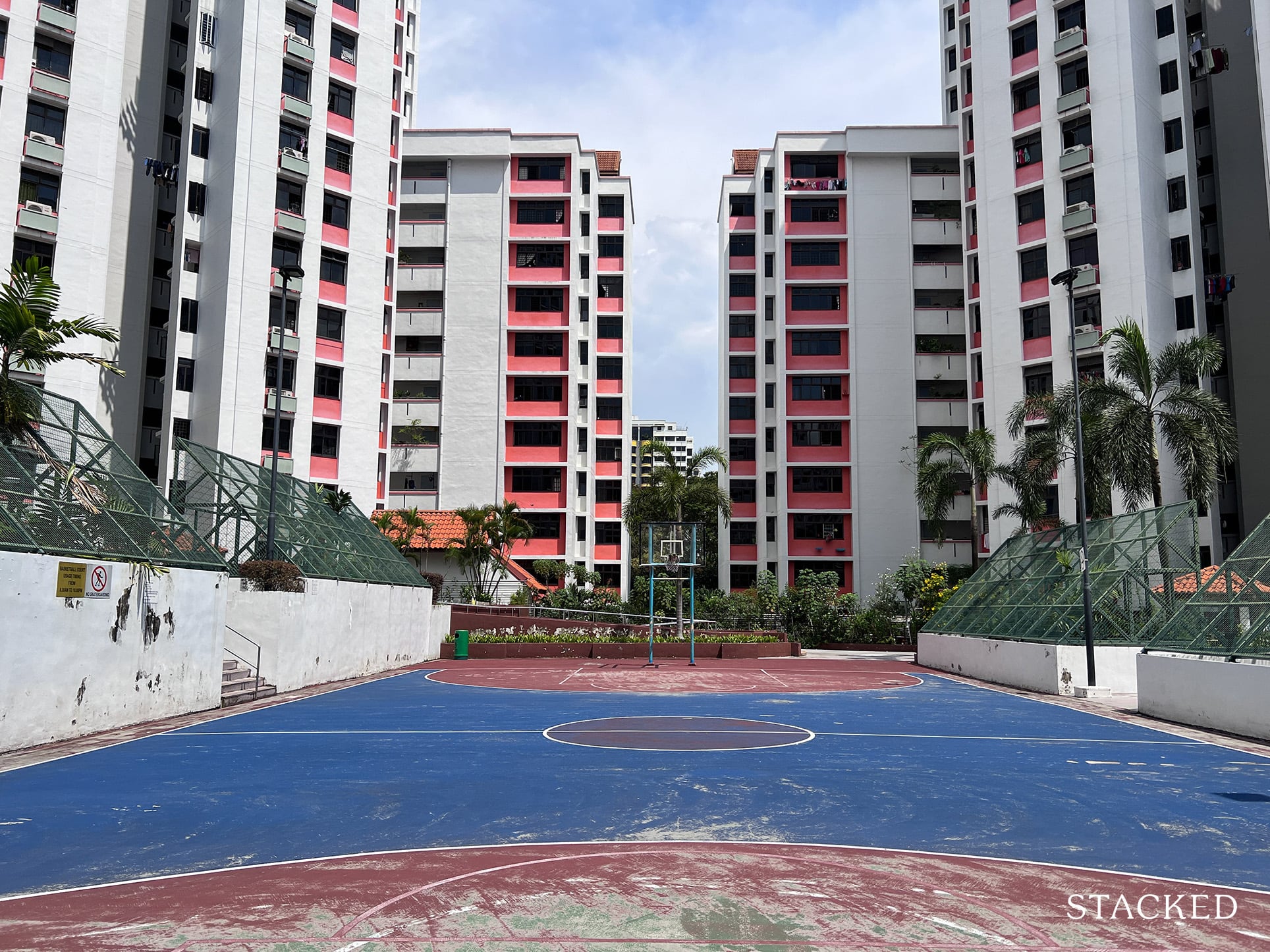
The Singapore government has announced new cooling measures, in response to rising interest rates and record-high home prices. Some of these, such as a higher floor rate for measuring debt servicing ratios, was long expected; but others, like an increased wait-out period for resale flats, came as a surprise.
Before we go into the new measures, here’s a look at the previous measures that took place on 16th December 2021 as a recap:
Here’s what you need to know:
Summary of cooling measures:
- Higher floor rate for MSR, TDSR, and HDB loan
- Lower LTV limits for HDB loans
- 15-month wait-out period for some down graders
Table Of Contents
- Summary of cooling measures
- 1. Higher floor rate for MSR, TDSR, and HDB loan
- 2. Lower LTV limit on HDB loans
- 3. 15-month wait-out period for some downgraders
- What’s the likely impact on the property market?
- 1. Potentially higher down payments due to the raised floor rates
- 2. Minimal effect from the lower LTV ratio
- 3. Overall benefit to first-time home buyers of resale flats
1. Higher floor rate for MSR, TDSR, and HDB loan
First, for property loans granted by private financial institutions, MAS will raise by 0.5%-point the medium-term interest rate floor used to compute the Total Debt Servicing Ratio (TDSR) and Mortgage Servicing Ratio (MSR).
The MSR applies when buying HDB properties. This caps your monthly home loan to 30 per cent of your monthly household income.
The TDSR applies to private bank loans. This caps your monthly home loan repayment to 55 per cent of your monthly income, inclusive of other debt obligations (e.g., car loans, credit card loans, education loans).
When calculating these debt servicing ratios, the interest rate used will be either four per cent per annum, or the thereafter interest rate (whichever is higher).
Here’s how it works:
Say you apply for a bank home loan of $500,000. You opt for a 25-year loan tenure. Using the floor rate of four per cent, this comes to about $2,639 per month.
First, you need to meet the MSR – which means $2,639 cannot exceed 30 per cent of your monthly income. This means you the borrowers must have a combined income of at least $8,797, to qualify for the $500,000 loan.
Other debts are not relevant when calculating MSR – the only thing checked is that your home loan equals or exceeds 30 per cent of your monthly income.
What about TDSR?
Next, you need to meet the TDSR. For the TDSR, other debt obligations also matter; so for the purposes of this example, we will assume you pay $1,200 a month for another, unrelated loan (perhaps a car loan).
For this scenario, we combine your monthly home loan repayment ($2,639), plus your other debt obligations ($1,200), which means your total monthly obligation is $3,839.
The $3,839 cannot exceed 55 per cent of the borrowers’ income. That means the combined borrowers must earn at least $6,980 per month, to qualify for the $500,000 loan.
Note that the floor rate does not match the actual interest rate you’ll pay
The floor rate is set at higher than the market average, for the purposes of MSR and TDSR calculation. For example, most bank home loans are close to three per cent at the time of writing; but a floor rate of four per cent is used, to ensure there aren’t mass defaults in case the interest rate spikes.
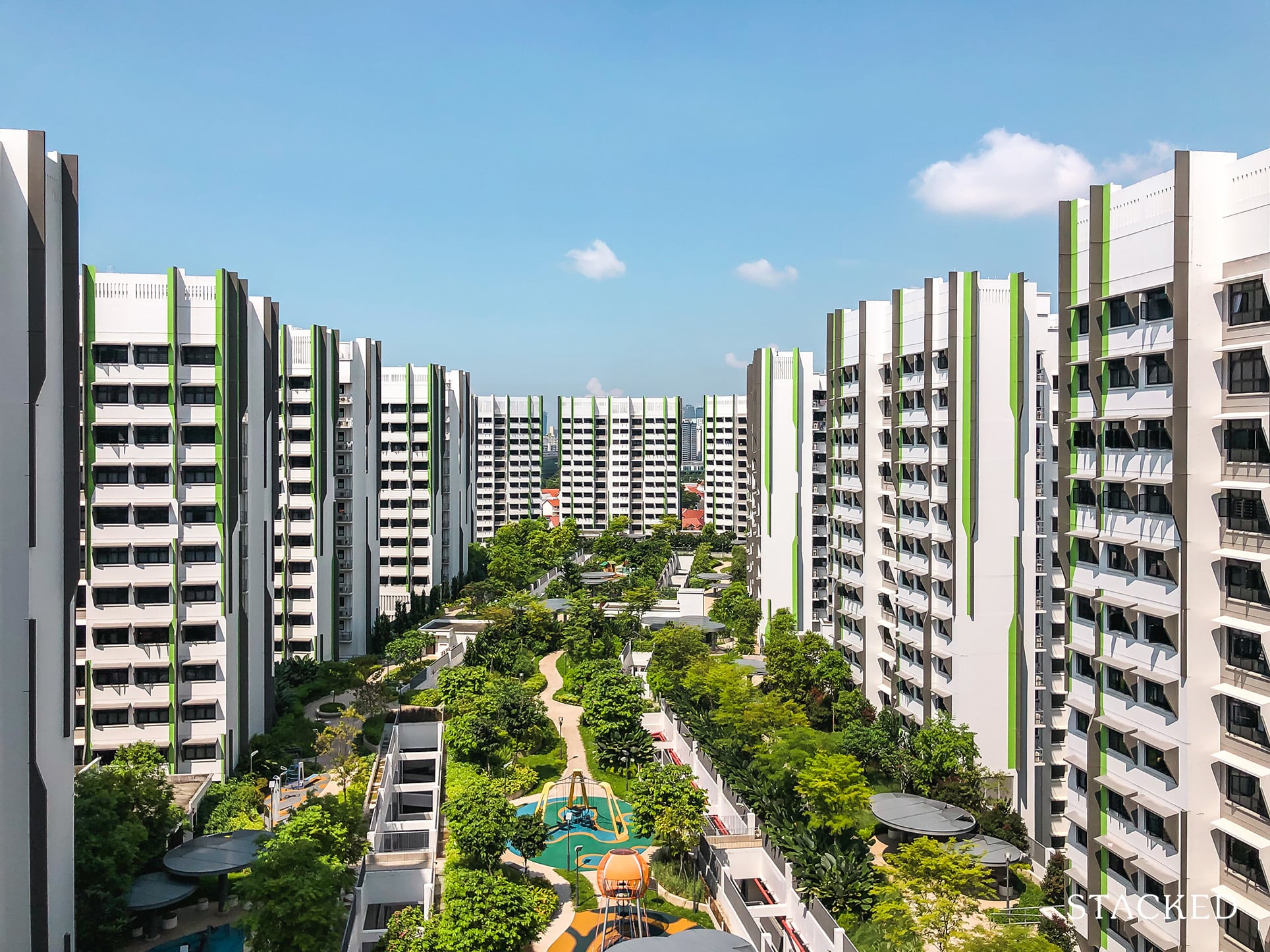
For HDB loans, a floor rate of three per cent is used
The actual HDB loan interest rate is always 0.1 per cent above the prevailing CPF interest rate. This HDB loan rate is thus 2.6 per cent per annum and has been for almost 20 years.
Under the latest change, however, a rate of three per cent and not 2.6 per cent, will be used to calculate factors like MSR or TDSR.
2. Lower LTV limit on HDB loans
Next, the Loan-to-Value (LTV) limit will be lowered for HDB housing loans from 85% to 80%.
The Loan To Value (LTV) limit stipulates how much you can borrow, based on the value/price of the intended property. For example:
With the current LTV limit of 80 per cent, you would be able to borrow up to $400,000 for your flat. The remaining $100,000 can be paid in any combination of cash or CPF.
Under the previous rules, you could have borrowed $425,000 (85% LTV), with the rest payable in cash or CPF.
The LTV adjustment is irrelevant to bank loans, as banks already have a lower LTV of 75 per cent.
Loan changes apply to transactions where the Option To Purchase (OTP) is dated on or after 30th September 2022.
If your loan was already approved before 30th September, then the old rules still apply to you; and you probably don’t need to go through the application process again.
In the event you didn’t use an OTP, the date on the Sale & Purchase agreement will be used instead (i.e., new loan restrictions don’t apply if the S&P is before 30th September).
Due to the lower LTV, there are now expectations that this could dampen the growth of million dollar HDBs that have been in the limelight for several years now.
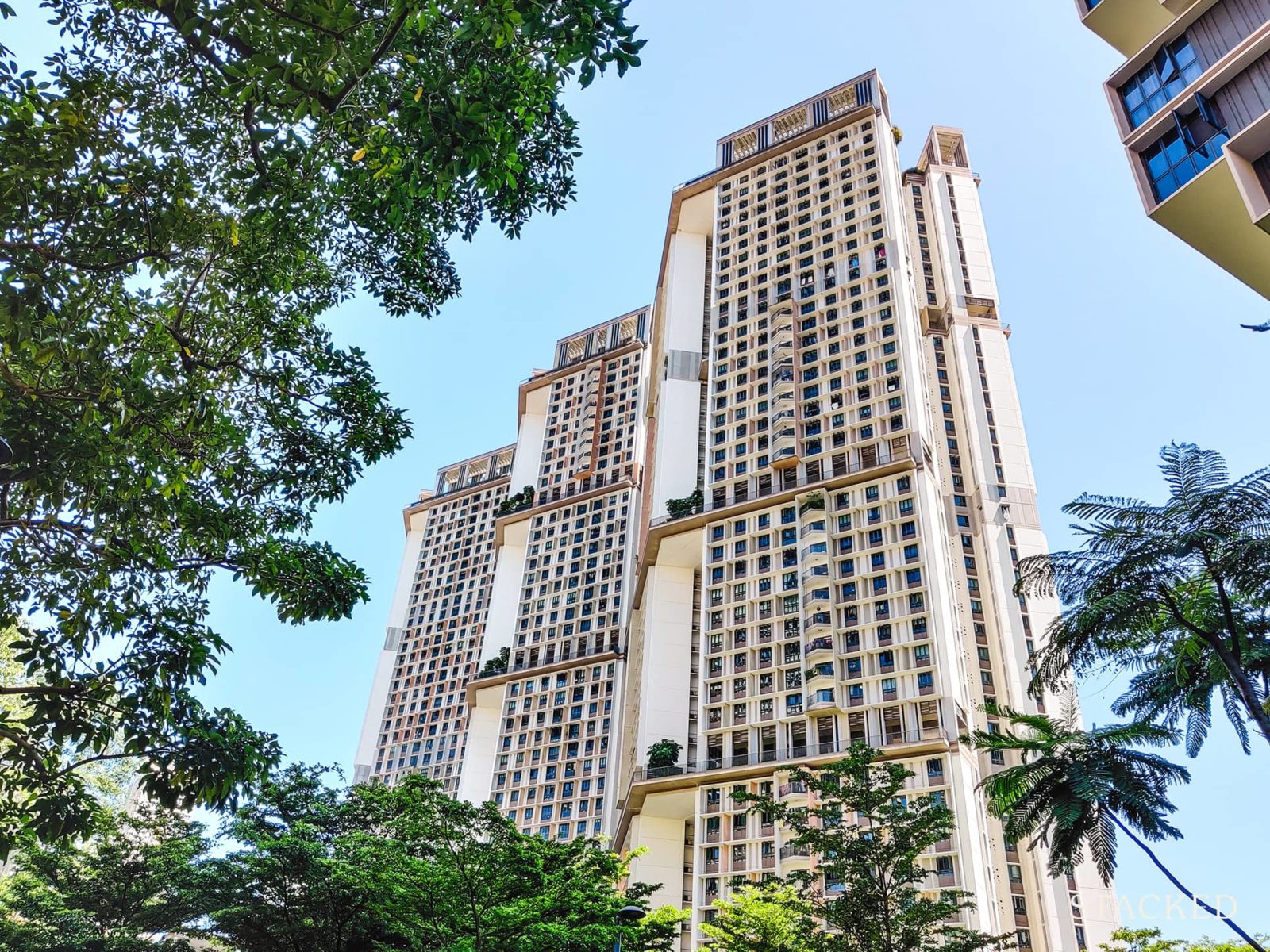
3. 15-month wait-out period for some downgraders
There is now a wait-out period of 15 months if you sell your private property to downgrade to a resale flat.
If you are 55 years or older, however, and are selling your private property to buy a 4-room or smaller flat, the wait-out period does not apply to you.
More from Stacked
We Asked: Is The New PLH Model Fair? Here’s The Collated Response From 175 People
The PLH model is one of the biggest changes we’ve seen to the housing market, since the first cooling measures.
When does the 15-month wait-out period start? The count starts from the Sale Completion date, not the option date.
This move is intended to cool demand in the resale flat market, which is at its highest point in around eight years.
Understandably, this has thrown the spanner into the works for many who have already sold their private residence with the intention to purchase an HDB.
They have stated though, that this is a temporary measure which could change depending on market conditions and demand.
Editor’s Note (6 October 2022)
We previously addressed a concern by a reader regarding the 15-month wait-out period for resale ECs that have not hit the 10-year mark.
We wrote “Note that this ruling does not affect Executive Condominiums (ECs) that are not yet fully privatised (less than 10 years old) as they are still considered private developments. The 10-year rule applies if trying to sell to foreigners.”
We now realise the paragraph could be taken to mean that those who own ECs less than 10 years old are unaffected. Our intent, however, was to refer to cases where those buying a resale EC of less than 10 years are not affected.
Shortly after our update, AsiaOne published our article on their website with our article which included the admittedly confusing paragraph.
Following feedback regarding the confusion, we decided to remove the paragraph altogether the next day.
AsiaOne has also removed the paragraph in line with our latest update. We apologise for any confusion caused.
What’s the likely impact on the property market?
We foresee some of the following issues:
- Potentially higher down payments due to the raised floor rates
- Minimal effect from the lower LTV ratio
- Overall benefit to first-time home buyers of resale flats
1. Potentially higher down payments due to the raised floor rates
If a buyer can’t meet the MSR or TDSR requirements, they only have three options: (a) take a longer loan tenure (not always possible), (b) take a smaller loan by buying a cheaper property, or (c) take a smaller loan by making a higher down payment.
In our experience, most buyers go with the third option.
This could lead to some unhealthy practices, among buyers who are unrealistic. The most common problem is that these buyers turn to parents, siblings, or other relatives; they might borrow the extra cash needed for a larger down payment.
While no one can stop you from doing this, do keep in mind the potential for nasty disputes later (e.g., what is the dispute resolution mechanism, if the borrowers fail to pay back the borrowed money?)
One significantly affected group will be gig economy workers or the self-employed. Under the current rules, self-employed persons apply a haircut of 30 per cent to their income, for the purposes of TDSR or MSR.
This means a couple who both have variable income, and earn an average of $4,000 a month, will count as earning just $2,800 per month. It might be time for the self-employed to start aggressively saving.
Although HDB/MND did add that they don’t expect this to affect first-timer and lower-income flat buyers too much, as they are possibly able to receive housing grants of up to $80,000 when buying a subsidised flat directly from HDB, or up to $160,000 when buying a resale flat.
2. Minimal effect from the lower LTV ratio
Most Singaporeans already pay more than 20 per cent down for their flat. Consider, for instance, a couple with $60,000 each in their CPF; not an unusual amount to have accumulated by one’s mid-thirties.
If they were to buy a $400,000 flat, the minimum down payment is $80,000; but they are already paying $120,000 from their CPF.
(Note that you can only retain up to $20,000 in your CPF OA, when buying a home. The rest of your CPF OA must be used to pay for the flat). This applies only if you take an HDB loan.
3. Overall benefit to first-time home buyers of resale flats
People who have sold their condo or landed home are flush with cash, and they can afford almost any flat they want. These buyers may be contributing to the rash of million-dollar flats.
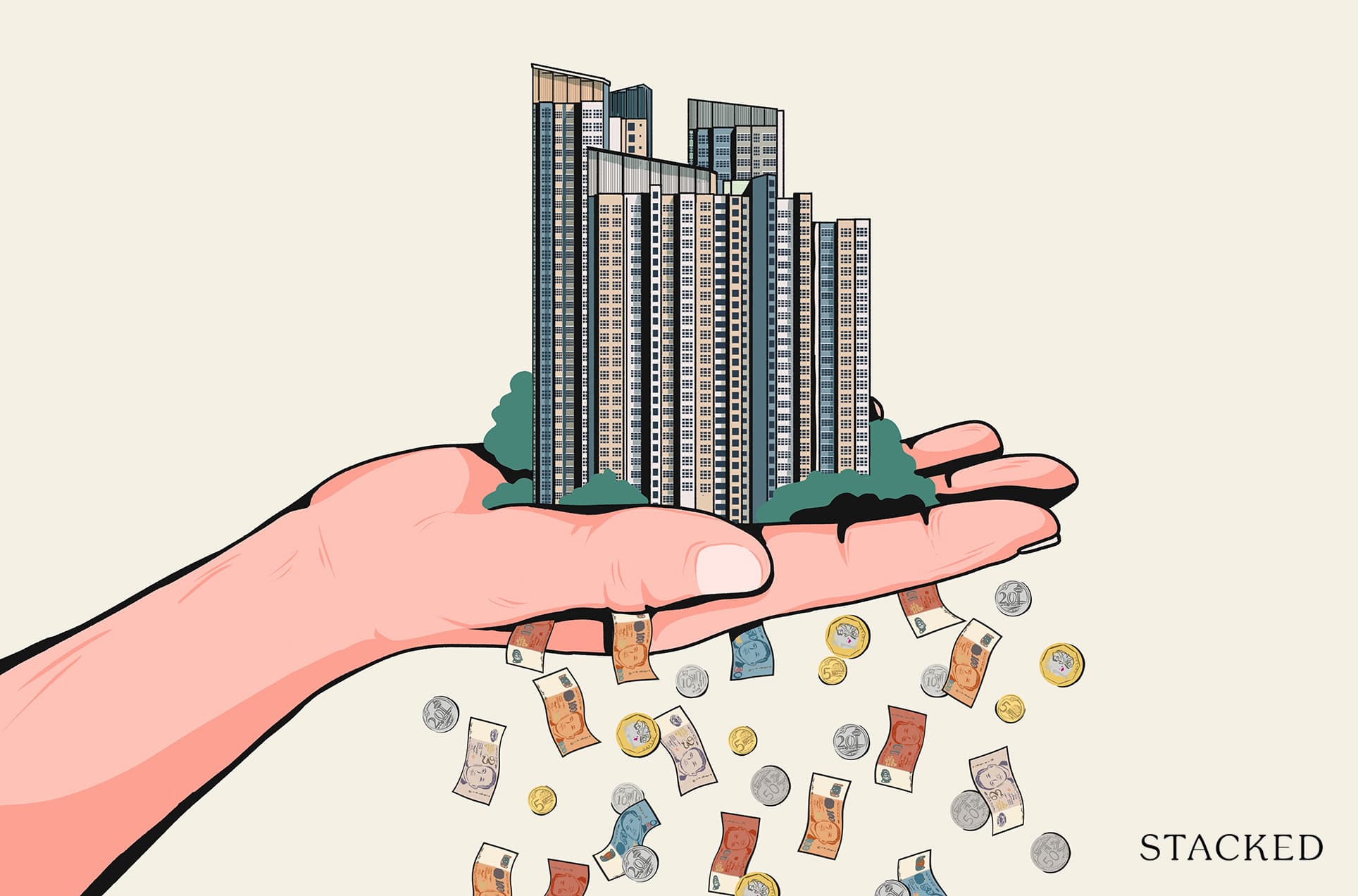
By slowing the entry of these buyers into the market, first-time home buyers – who may not have large proceeds to depend on – get a little more priority. We don’t think the longer wait-out will lower resale flat prices, as fundamental demand is strong; but it may be sufficient to prevent further price hikes.
As the situation is still new, do follow us on Stacked, and we can update you as we monitor it. We’ll also provide you with the latest insights and reviews of the Singapore property market.
*We previously mentioned that there was a wait out period of 6 months. This was incorrect. We apologise for the inconvenience caused.
This article was updated on 03 Oct 2022 to reflect more information on the 15-month wait-out period.
At Stacked, we like to look beyond the headlines and surface-level numbers, and focus on how things play out in the real world.
If you’d like to discuss how this applies to your own circumstances, you can reach out for a one-to-one consultation here.
And if you simply have a question or want to share a thought, feel free to write to us at stories@stackedhomes.com — we read every message.
Frequently asked questions
What are the new cooling measures announced in Singapore in September 2022?
How does the increased floor rate affect home loan calculations?
What is the impact of the lower LTV limit on HDB loans?
Who is affected by the 15-month wait-out period for resale flats?
How might these measures influence first-time home buyers?
Ryan J. Ong
A seasoned content strategist with over 17 years in the real estate and financial journalism sectors, Ryan has built a reputation for transforming complex industry jargon into accessible knowledge. With a track record of writing and editing for leading financial platforms and publications, Ryan's expertise has been recognised across various media outlets. His role as a former content editor for 99.co and a co-host for CNA 938's Open House programme underscores his commitment to providing valuable insights into the property market.Need help with a property decision?
Speak to our team →Read next from Singapore Property News

Singapore Property News Nearly 1,000 New Homes Were Sold Last Month — What Does It Say About the 2026 New Launch Market?

Singapore Property News The Unexpected Side Effect Of Singapore’s Property Cooling Measures

Singapore Property News The Most Expensive Resale Flat Just Sold for $1.7M in Queenstown — Is There No Limit to What Buyers Will Pay?
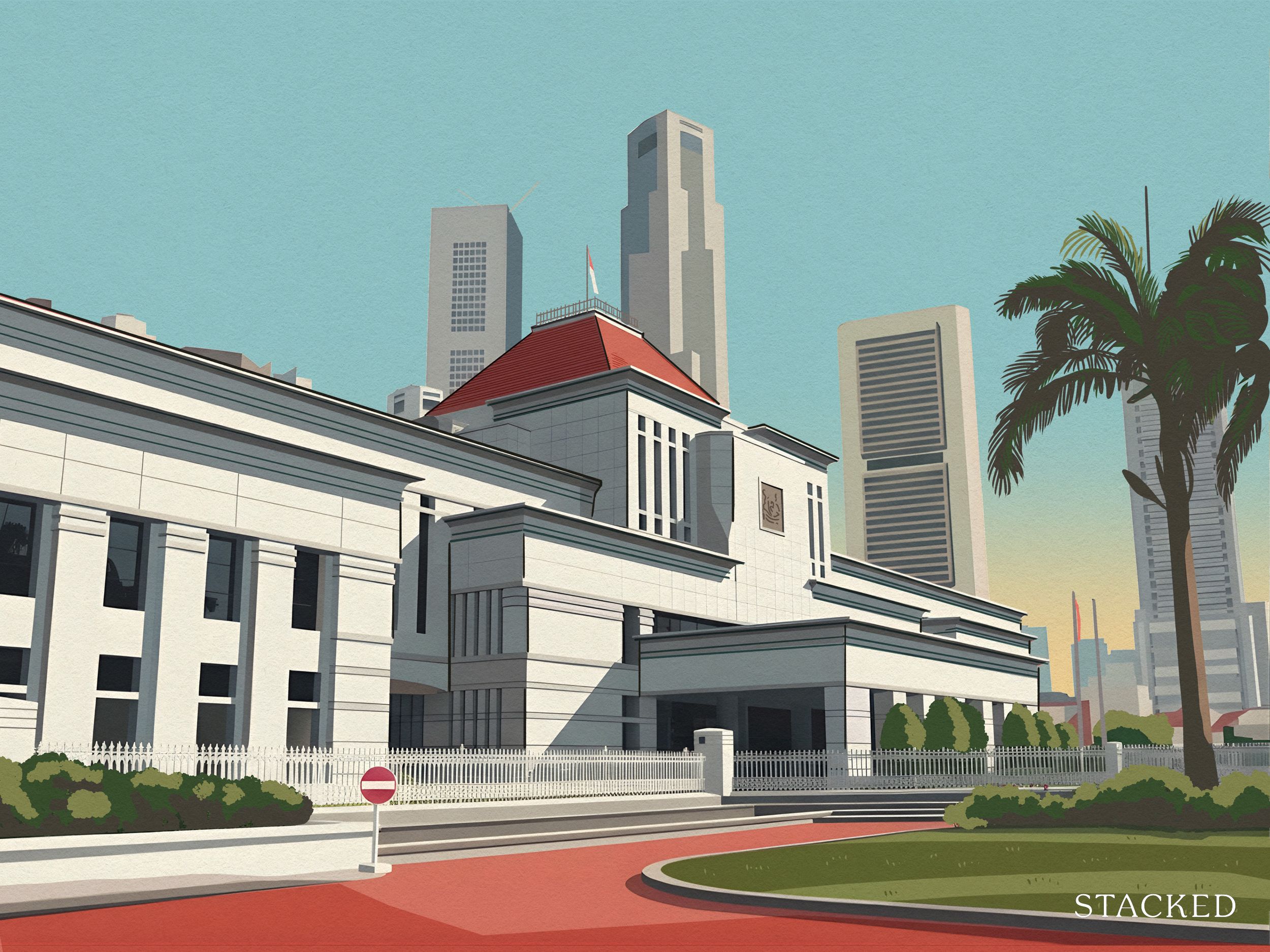
Singapore Property News Why Housing Took A Back Seat In Budget 2026
Latest Posts

Pro This Singapore Condo Has Bigger Units Near The MRT — But Timing Decided Who Made Money
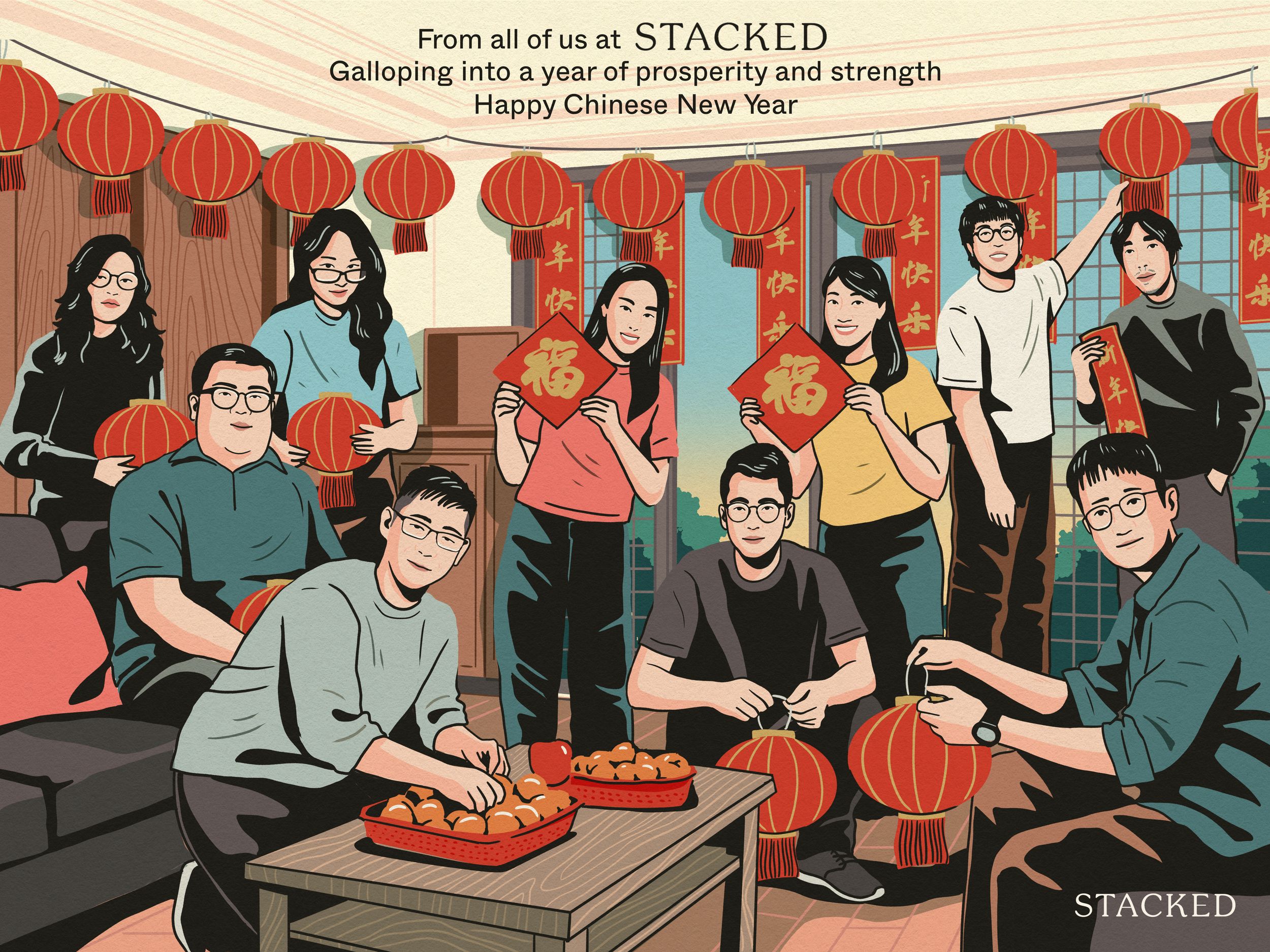
Editor's Pick Happy Chinese New Year from Stacked

Editor's Pick How I’d Invest $12 Million On Property If I Won The 2026 Toto Hongbao Draw





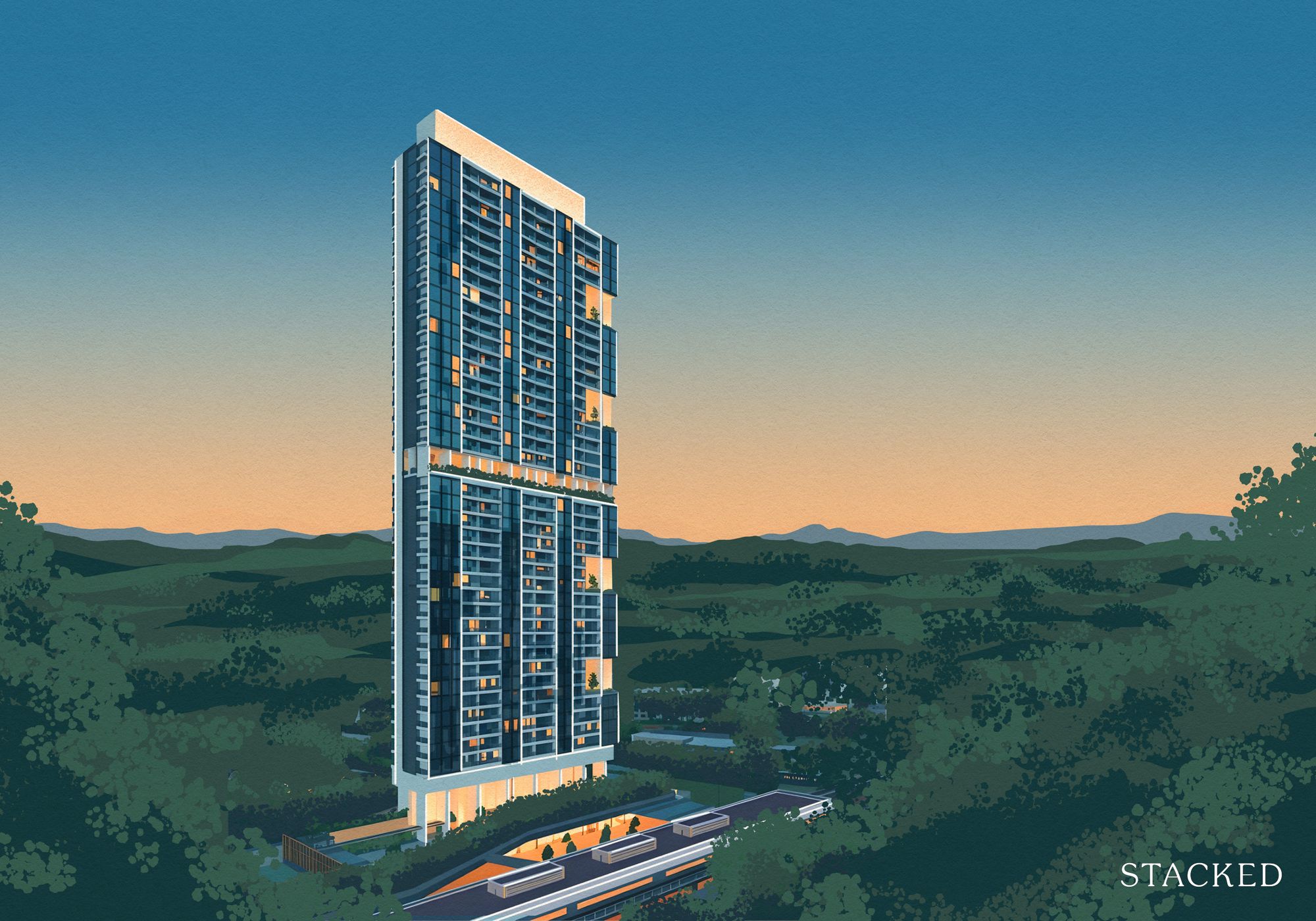



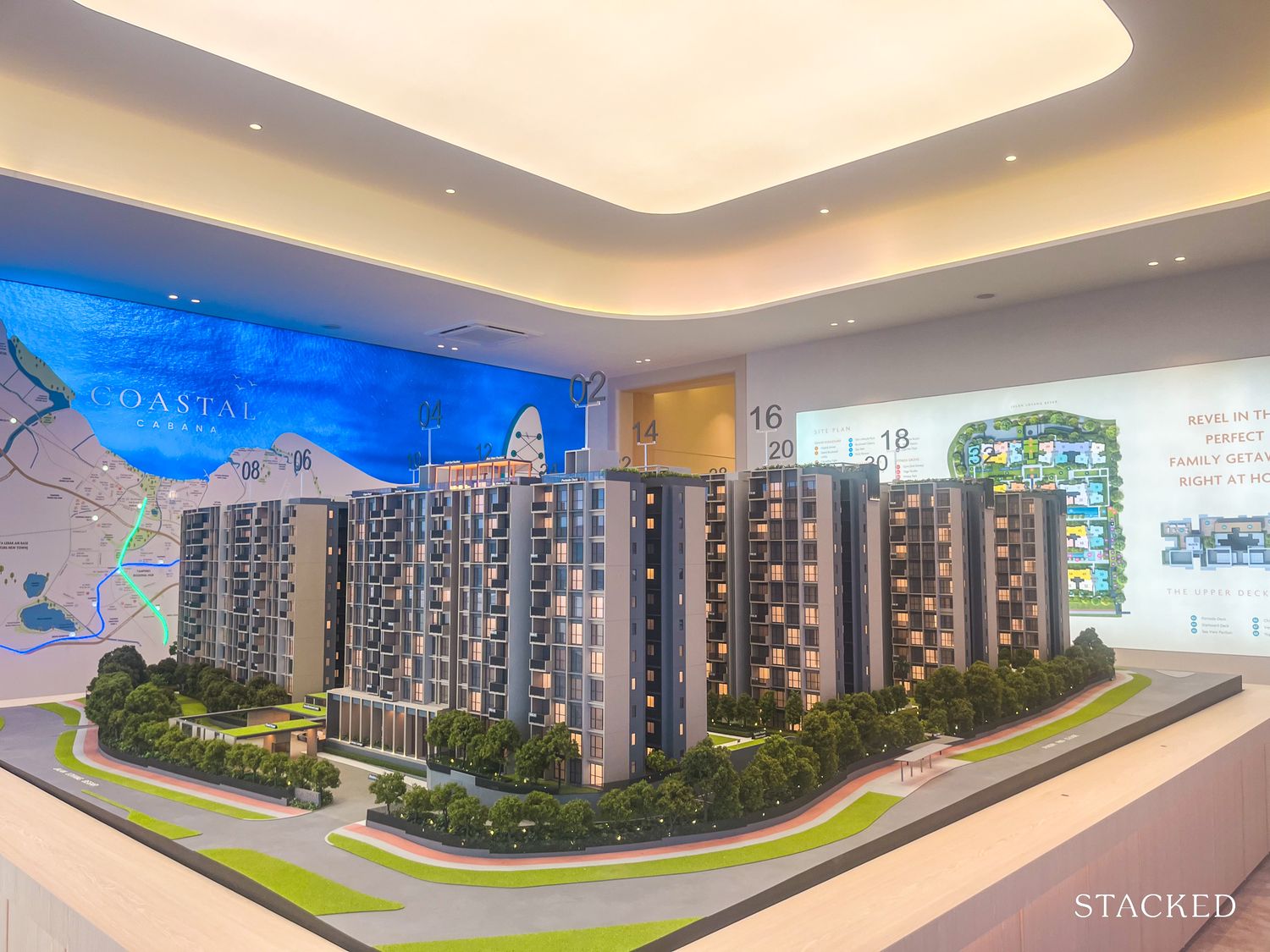







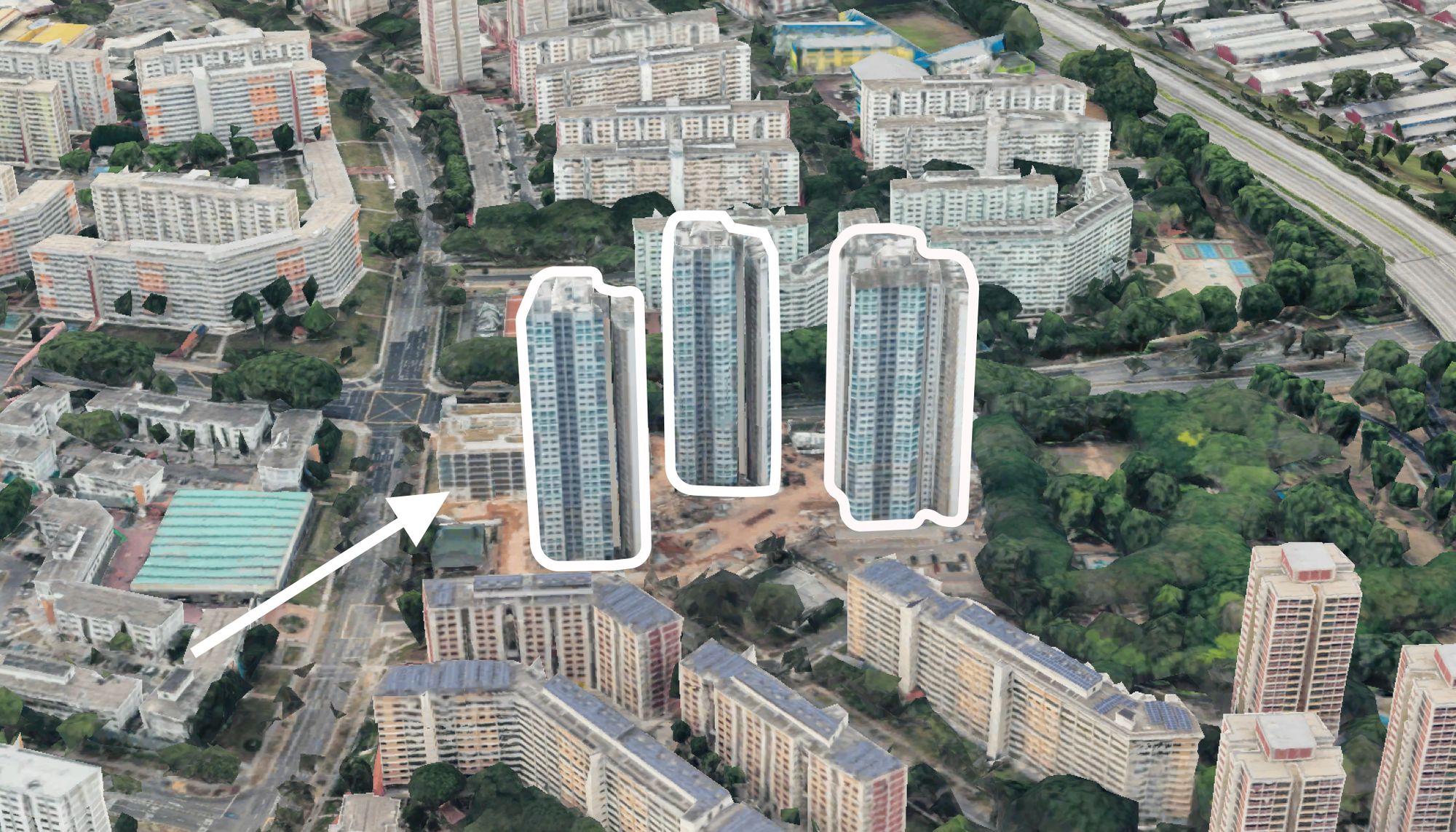
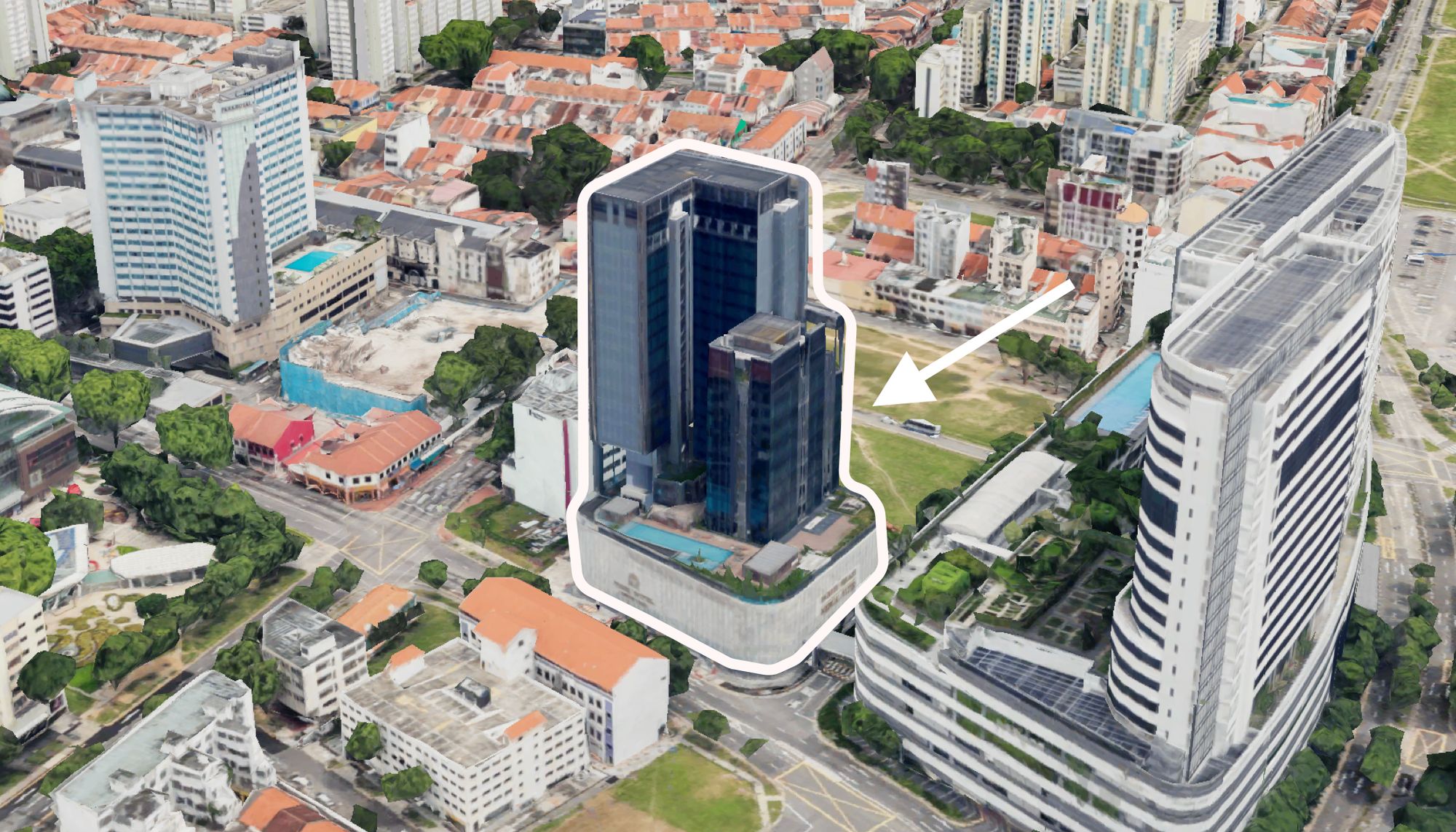













11 Comments
Agreed that the change in LTV won’t really make waves, as most of those who are able to buy the higher end HDBs would be taking bank loans anyway. Those poorer ones who are unable to accept that they should just be buying cheaper properties will find ways and means to scrape the upfront payment, like you mentioned.
Sidenote: you were quite charitable with your choice of words in describing the hypothetical mid 30s couple having 60k each in their CPF OAs – this is basically poverty level as even an entry level 3k income over 10 years of work with no increments at all (extremely unlikely worst case scenario) would net you more than than 70k easily. In spite of that, this couple is still able to afford an apartment – who says HDBs are too expensive?
Personally feel that the 15 month wait will at least hamper price increases for the top end of resale HDBs. Might take a while for sellers to realign their expectations though, by which time ex-private property owners may be able to enter the market again.
Hi Ryan, does HDB define when the 15mth wait-out starts counting, I.e. from the date OTP signed or date of OTP exercised or date of completion of the private property?
Does EC which have reached MOP last year considered as private property and will it be affected by this new cooling measures?
My crystal ball said that 1) HDB 5 room price will drop. Because of higher floor rate of MSR, TDSR. And lower LTV ratio. Private owners will think twice in moving to HDB unless they want a HDB 4 room. 2) Private property may increase in price. I would factor the 15 months wait out period + 3-5 months of sales completion rental in sales price. But with the MDR, TDSR, increasing interest rate, people may find financially challenging to move from HDB to Private.
So it may result in a stagnant state for HDB 5 room and private property sales.
Let’s see the Q4 housing transaction. Exciting.